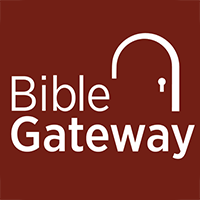The Meaning and Origin of ‘In the Beginning Was the 'Word'
''In his endlessly informative Asimov’s Guide to the Bible: The New Testament: 002, the author and all-round polymath Isaac Asimov links John’s ‘In the beginning was the Word’ to the Greek philosophy of Thales of Miletus, who lived in the seventh century BC.
Thales argued that, contrary to the idea that the world was largely erratic and unpredictable in its operations, it was actually subject to rigid laws of nature, and that these laws could be discovered using reason and observation. This is the beginnings of both rationalism and empiricism, if you will.
‘In the beginning was the Word, and the Word was with God, and the Word was God.’ These are among the most famous lines in the New Testament: they begin the Gospel of St. John. But what does ‘In the beginning was the Word’ mean? Let’s take a closer look at the meaning of this famous opening sentence.
It’s perhaps helpful to begin by setting out the difference between the Gospel of John and the three other gospels: Matthew, Mark, and Luke. The Gospel of Mark is thought to have been composed the earliest of the four gospels, with Matthew and Luke basing their own accounts on it.
The gospel of John was written later still, and of the four, has the strongest claim to actually having been written by one of Jesus’ apostles. (It’s been speculated, though we cannot know for sure, that John may have written his account in the late first century AD, when he was an old man of nearly 90.)
Matthew, Mark, and Luke are grouped together as the ‘Synoptic’ gospels, from a word meaning ‘seeing together’. These three accounts all reflect each other to varying degrees.
But the Gospel of John is quite different. Right from those opening words, ‘In the beginning was the Word, and the Word was with God, and the Word was God’, John is signalling that his account of Jesus’ life will be treating Jesus as much more than a human being.
This is not to say that the other gospel writers don’t also acknowledge that Jesus is the Messiah (as well as a human being), but that John’s Jesus is supernatural and ethereal – otherworldly, almost – right from the beginning.
‘In the beginning was the Word.’ But what does John mean by ‘the Word’? The original Greek text has Logos, for which ‘the Word’ is our English translation.
But Logos is a word that comes with a lot of meanings packed into it, and ‘the Word’ is only a partial reflection of this densely significant word. This term, ‘the Word’, is not found in the Old Testament, and its use in the New Testament is down entirely to John.
In his endlessly informative Asimov’s Guide to the Bible: The New Testament: 002, the author and all-round polymath Isaac Asimov links John’s ‘In the beginning was the Word’ to the Greek philosophy of Thales of Miletus, who lived in the seventh century BC.
Thales argued that, contrary to the idea that the world was largely erratic and unpredictable in its operations, it was actually subject to rigid laws of nature, and that these laws could be discovered using reason and observation. This is the beginnings of both rationalism and empiricism, if you will.
This meant that God – or, depending on which belief system you subscribed to, a whole pantheon of gods – created the world upon some clear and knowable principle, and that this principle is constant rather than changeable and arbitrary.
One of Thales’ followers, Heraclitus, used the term ‘Logos’ to refer to this rational principle. ‘Logos’ means ‘word’ but it also denotes the entire rational structure of knowledge as Thales and Heraclitus had theorised it.
And as the term ‘Logos’ was taken up by more and more philosophers, it came to refer not to some abstract entity but to a thing, even a person: the person who had created this orderly system of knowledge and principle in the world. Logos, if you will, became personified.
This tradition spread beyond the Greek world, and was taken up by the Jewish followers of Yahweh, or the Old Testament God. In Jesus’ time, a man named Philo the Jew popularised the term Logos as a reference to the rational aspect of Yahweh.'' - Dr Oliver Tearle (Loughborough University)

